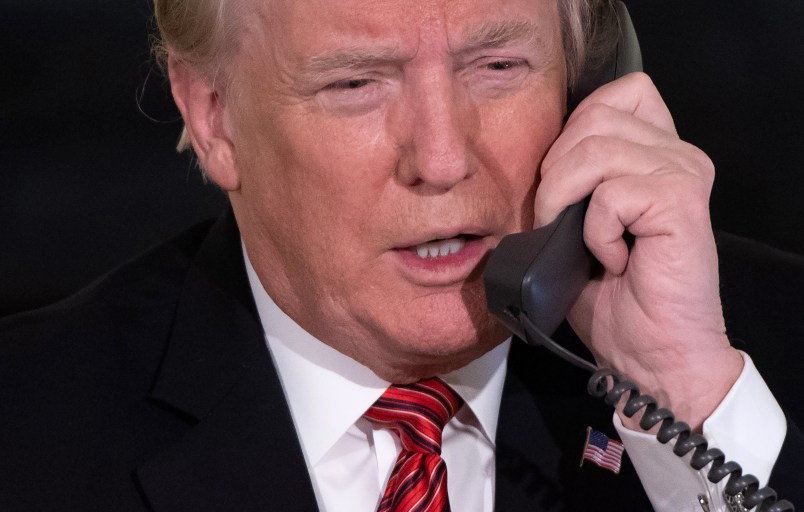Prosecutors in Georgia appear to be closely weighing a criminal investigation into President Trump over his efforts to overturn election results in the state, The New York Times reported late Friday.
The inquiry would be the second known criminal investigation of the President that falls outside of any potential protection from a federal pardon.
The district attorney in Fulton County, which became a key target in Trump’s false narrative over election fraud, is said to be looking into a number of options to address Trump’s meddling in the state’s 2020 presidential election results. People familiar with her office’s discussions told the Times that the top attorney, Fani Willis, is considering hiring a special assistant from outside to oversee the investigation, among other possibilities.
The news comes as David Worley, a Democratic election board member for the state said earlier this week that he would ask the board to make a referral to the Fulton County district attorney by next month.
According to the Times, Worley said that he will ask prosecutors to investigate the now infamous phone call Trump made that sought to pressure Georgia Secretary of State Brad Raffensperger (R) to “find” votes to overturn the battleground state’s election results — an effort that many have criticized as a clear violation of state law.
The call to Raffensperger is one of several calls to Georgia Republicans that have been cited as examples of Trump’s efforts to interfere in the Nov. 3 election — other calls were made to Georgia Gov. Brian Kemp (R) and later to an elections investigator.
District attorney spokesman, Jeff DiSantis, told the Times, however, that the office had not moved to hire outside counsel for an investigation on the matter.
But in an interview with the Times, Worley pledged that if no investigation had been announced by Feb. 10, when the elections board is next scheduled to meet, he would make a motion for the board to refer Trump’s calls to the district attorney’s office an effort that he believes should prompt an investigation.
If the board declines to make a referral, Worley told the Times he would urge Willis himself to open an inquiry.
Legal experts told the Times that Trump’s calls may have broken at least three state criminal laws, including criminal solicitation to commit election fraud and a related conspiracy charge, which can both be prosecuted as either a felony or a misdemeanor. A third law that Trump may have breached includes “intentional interference” with another person’s “performance of election duties,” a misdemeanor offense.



